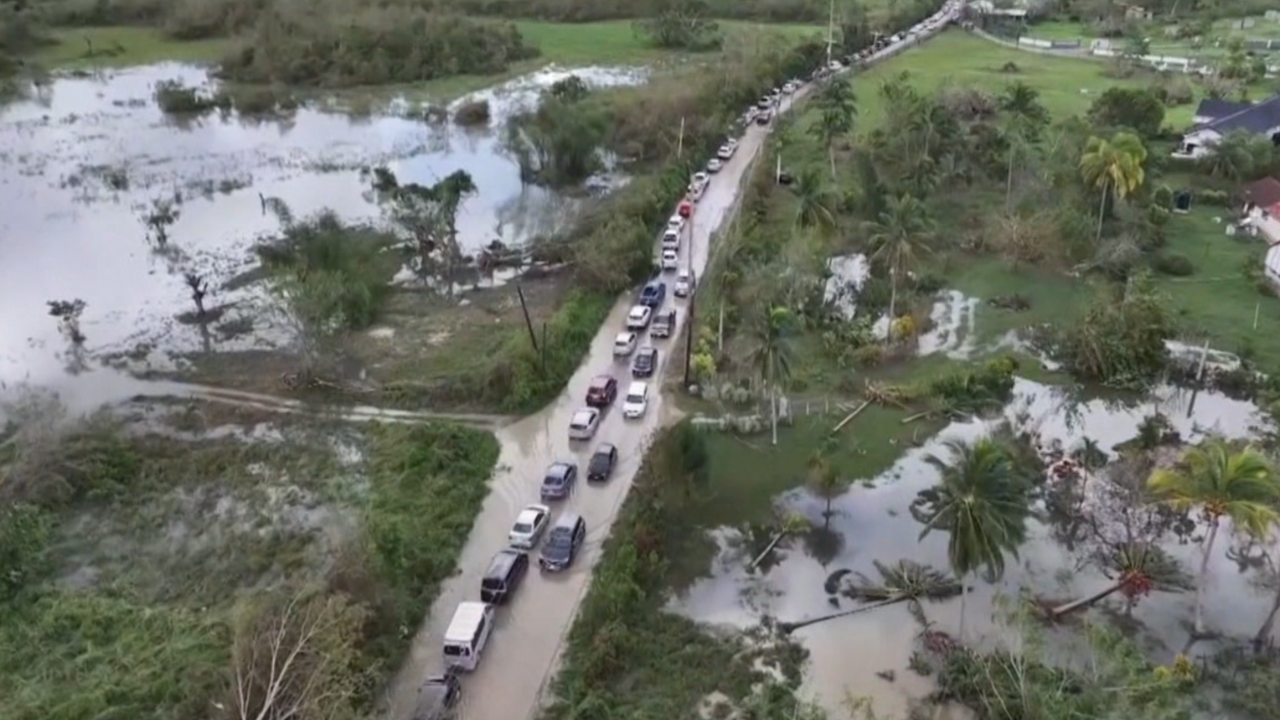TALLAHASSEE, Fla. — Hurricane Melissa’s catastrophic strike on Jamaica has sparked renewed debate over whether the U.S. should extend Temporary Protected Status (TPS) to affected Caribbean nationals already here, particularly in Florida, home to one of the nation’s largest Jamaican communities.
Aerial images show entire neighborhoods flattened, and Jamaican Prime Minister Andrew Holness said as much as “80 to 90% of roofs have been destroyed” along parts of the south coast. The storm’s aftermath has immigration advocates urging the federal government to act.
South Florida immigration attorney Renata Castro said it would be “inhumane” to force people back to a disaster zone as visas expire.
“This is not amnesty. This is a temporary situation,” Castro said. “Usually lasts between two and four years, and I and other immigration attorneys are really apprehensive about how the Trump administration is going to make a decision in the days to come.”
TPS, created by Congress in 1990, allows individuals from disaster-stricken countries already in the U.S. to remain and work legally while their homeland recovers. The program has previously been used after the 2010 earthquake in Haiti and hurricanes in Central America.
White House Noncommittal
President Donald Trump this week said the U.S. is monitoring the situation.
“On a humanitarian basis we have to,” Trump said in a Wednesday press availability. “We’re watching it closely, and we’re prepared to move.”
But so far, the administration has offered no indication TPS is being considered. A White House press request Thursday was met with an auto-reply citing delays due to the ongoing government shutdown.
Adding to uncertainty, Vice President J.D. Vance recently called for reducing legal immigration, arguing the U.S. needs to “accept far less” to preserve “a common community.”
Families Waiting
Immigration advocates say the clock is ticking for many Jamaicans in Florida on temporary visas who may have no homes to return to.
“The state of Florida has one of the largest Jamaican communities,” said Castro. “This is a humanitarian protection because you don't want to deport individuals or have them forced to go back because their visas expired, or whatever the situation may be, to a natural disaster-ravaged location.”
The Department of Homeland Security has not announced whether Jamaica or other Caribbean nations hit by Melissa will receive TPS protection. That decision will likely depend on damage assessments in the days ahead.
For now, many families across Florida and the Caribbean are waiting, hoping for clarity and for relief.
Share Your Story with Forrest

Capitol Reporter Forrest Saunders is dedicated to sharing your voice with political leaders throughout the state. He works to hold our elected leaders accountable and amplify your concerns. Let Forrest know about the issues you want state leaders to focus on.
.

How journalists battle the rise of AI fake news
As News Literacy Week kicks off in partnership with Scripps News, Tampa Bay 28 reporter Michael Paluska sat down with fact-checkers at PolitiFact to learn how they combat misinformation in the age of AI.





